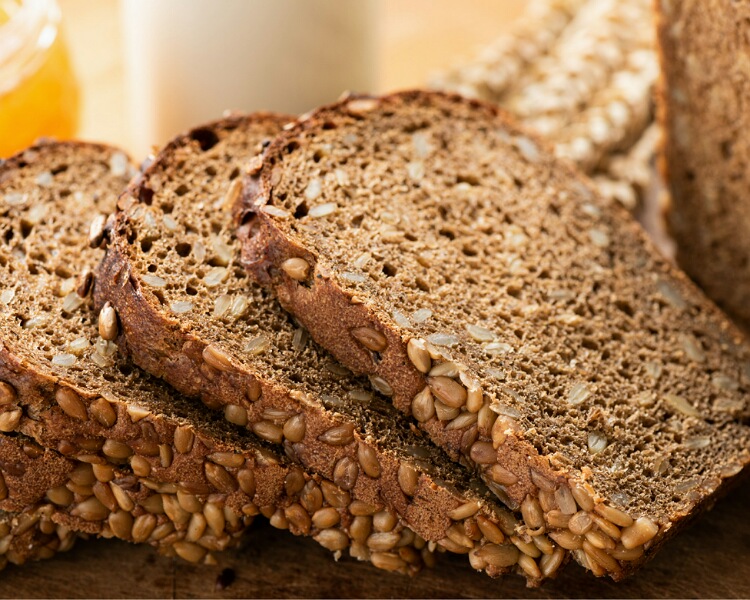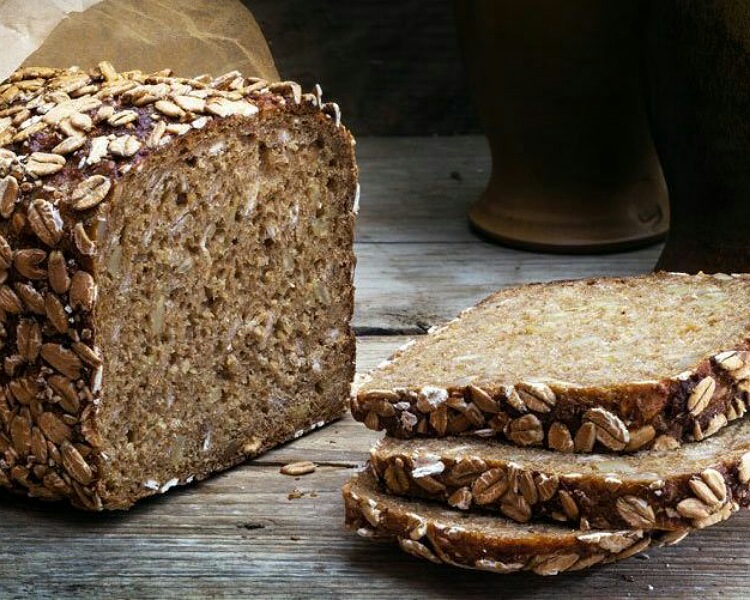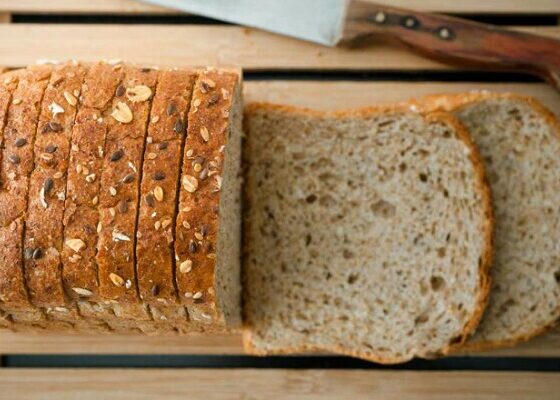Sprouted bread is made from grains that have started to sprout. These breads supposedly have more nutrients compared to those that are made from whole grains that had not sprouted. How true are these claims? What are the health benefits?
Sprouted bread
Sprouted bread is prepared from flour of grains that have started germinating. Sprouting is a process in which grains are exposed to appropriate warmth and moisture. Due to this, the grains begin to sprout. This changes the nutrient profile of the grains. They become easier to digest. Also, their nutrients become more available.
This process provides the consumer with some health benefits.
Health benefits
Higher in nutrients
In sprouted breads, whole grains are used. These are sprouted, ground, and the resulting flour is used to bake the bread. Hence, it retains the essential nutrients such as vitamins, minerals, and dietary fiber.

These breads might also contain different grain types such as sprouted wheat, barley, soybeans, lentils and spelt. Combining cereal grains with legumes completes the amino acids content. Hence, it has superior nutritional value compared to normal whole wheat breads.
Sprouting increases the amino acid and protein content of the grains and hence the flour. The bread has 15 g of protein now as against the 11 g in whole wheat bread. The fiber content also is higher. In 2014, there was a study that revealed that sprouting brown rice raised it’s fiber content by 6.1%, and after 96 hours, the increase was 13.3%.
These breads have more folate, more vitamin E, C and beta-carotene.
Lesser anti-nutrients
Phytic acid is an anti-nutrient that does not decrease with cooking. It blocks absorption of calcium, zinc, and iron. But sprouting lessens it.
Blood sugar control
Sprouting breaks down starch. Carb content decreases. Due to less carbs and more fiber, the glycemic index of sprouted bread is lower. It prevents high blood sugar rise and is good for diabetics.

Easy to digest and absorb
Sprouting breaks down starch and increases enzymes such as amylase and phytase. Hence digestion and absorption is better. But the high temperature of baking destroys the enzymes. Hence, these breads are baked at lower temperatures.
Also, it also lowers the lectin content. Lectin causes chronic inflammation and autoimmune diseases.
Lesser gluten
Sprouting lessens the gluten by half. Hence, the tolerability improves. But it still has gluten in it. Therefore, it is not a good choice for those with gluten intolerance or celiac disease.
Higher antioxidants
Sprouting increases the antioxidant level. The vitamin C, E and beta carotene is more in such breads. These antioxidants mop up the damaging free radicals and prevent chronic inflammatory diseases and reduce risk of cancer.

Easily availability
These breads are easy to find in local grocery shops, bakeries and shops. These breads are denser and heavier than the regular breads. It is good in toasted form.
Also, read Healthy breads vs unhealthy breads. Which breads to avoid?
Try to incorporate these breads in your daily diet. Swap them and use them in place of regular breads for more nutrients, easy digestibility and better health.
